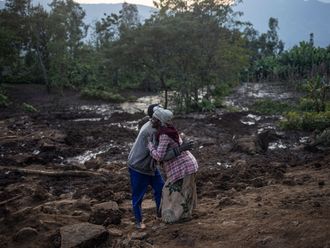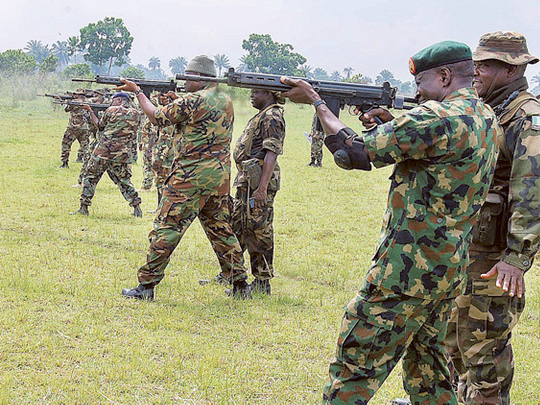
ABUJA: Nigeria’s military announced a “massive” deployment of troops to its restive northeast, after the president declared a state of emergency in areas where insurgents have seized territory.
A military source speaking on condition of anonymity told AFP Wednesday that fighter jets would also be deployed to the region, raising the possibility that Nigeria could carry out air strikes within its own territory.
President Goodluck Jonathan issued the emergency decree in a broadcast late Tuesday, acknowledging for the first time that Boko Haram Islamists had “taken over” parts of Borno state, the insurgents’ stronghold.
“Nigerian Armed Forces... have commenced operations to rid the nation’s border territories of terrorist bases,” a military statement said.
“The operations which will involve massive deployment of men and resources, is aimed at asserting the nation’s territorial integrity,” it added.
A top US official called on Nigeria to protect the rights of civilians and avoid any “heavy-handed” response against the rebels.
“We call on Nigerian officials to ensure that Nigeria’s security forces protect civilians in any security response in a way that respects human rights and the rule of law,” State Department spokesman Patrick Ventrell said.
“We have made clear to the Nigerian government that its heavy-handed response to insecurity in northern Nigeria and the failure to address human rights violations will potentially affect our ability to provide security assistance going forward,” he added.
The emergency measures were applied to three states, including Yobe and Adamawa, but the offensive is widely expected to be concentrated in Borno, which shares borders with Cameroon, Chad and Niger.
Boko Haram, which says it is fighting to create an Islamic state in Nigeria’s mainly Muslim north, had used Borno’s capital of Maiduguri as a home base but its fighters have relocated to remote border regions following a crackdown in the city.
The area’s borders are porous and analysts say that criminal groups and weapons can move freely between countries.
The military’s presence in these areas had previously been limited, especially compared to northeastern cities like Maiduguri and Yobe’s capital of Damaturu, where the military has blanketed the streets to combat Boko Haram.
In 1998, more than a decade before the Islamist threat emerged, Nigeria launched a multi-national force with Chad and Niger to contain criminality in the border areas.
But the force has proved incapable of combating the emboldened, well-armed Islamists.
While it is still too early to quantify the scale of the operation, the president’s admission that troops were needed to re-establish Nigeria’s sovereignty makes the campaign one of the most significant since the 1967-1970 civil war.
“There’s a real spiralling in violence... linked to an expansion of the resources of Boko Haram and an increase in the sophistication of weaponry,” said Elizabeth Donnelly of the Africa Programme at the London’s Chatham House think-tank.
Brutal clashes between soldiers and Islamist gunmen on April 16 led to the deaths of about 200 people in the town of Baga on Lake Chad, half of which was destroyed by fire during the fighting.
The military said the insurgents were armed with rocket propelled grenades and heavy machine guns.
Jonathan said the Boko Haram violence, which has left thousands dead since 2009, could no longer be treated as “militancy or criminality” but now amounted to “a declaration of war”.
Some analysts warn that Boko Haram has been increasingly influenced by like-minded extremist groups, including Al-Qaeda’s North Africa wing, but the extent of those ties remains unclear.


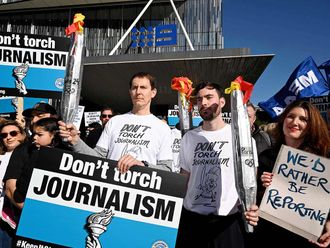



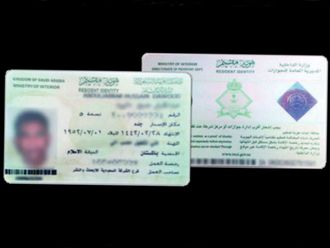

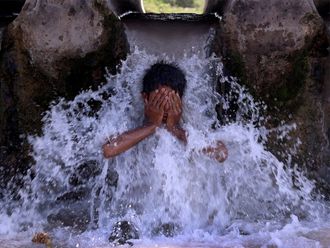

_resources1_16a30b3523c_small.jpg)
